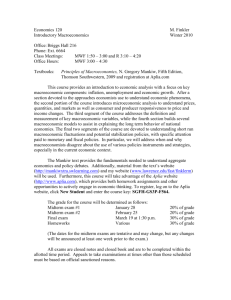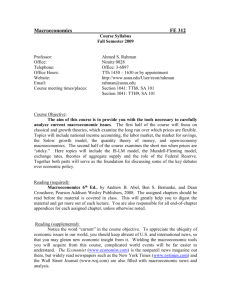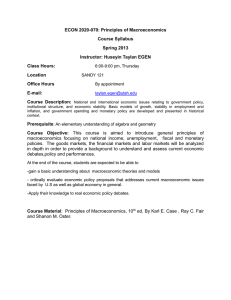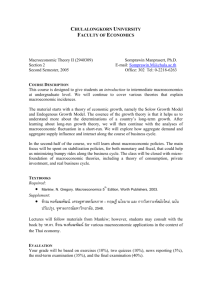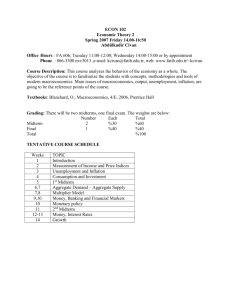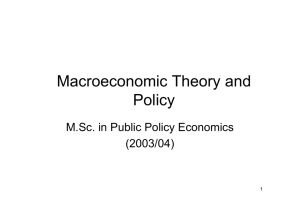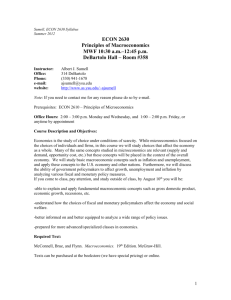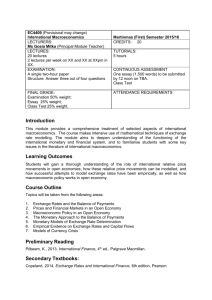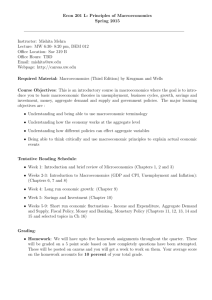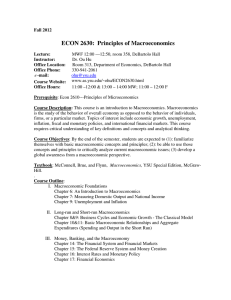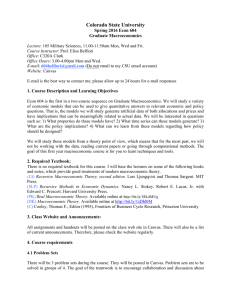Introductory macroeconomics
advertisement
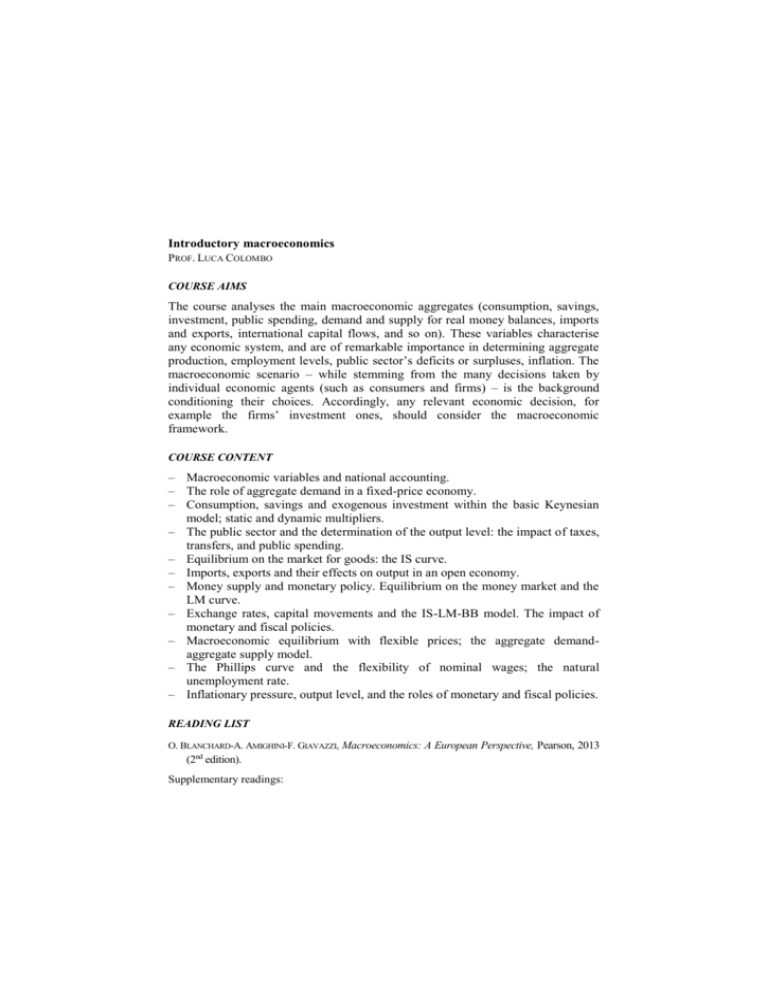
Introductory macroeconomics PROF. LUCA COLOMBO COURSE AIMS The course analyses the main macroeconomic aggregates (consumption, savings, investment, public spending, demand and supply for real money balances, imports and exports, international capital flows, and so on). These variables characterise any economic system, and are of remarkable importance in determining aggregate production, employment levels, public sector’s deficits or surpluses, inflation. The macroeconomic scenario – while stemming from the many decisions taken by individual economic agents (such as consumers and firms) – is the background conditioning their choices. Accordingly, any relevant economic decision, for example the firms’ investment ones, should consider the macroeconomic framework. COURSE CONTENT – Macroeconomic variables and national accounting. – The role of aggregate demand in a fixed-price economy. – Consumption, savings and exogenous investment within the basic Keynesian model; static and dynamic multipliers. – The public sector and the determination of the output level: the impact of taxes, transfers, and public spending. – Equilibrium on the market for goods: the IS curve. – Imports, exports and their effects on output in an open economy. – Money supply and monetary policy. Equilibrium on the money market and the LM curve. – Exchange rates, capital movements and the IS-LM-BB model. The impact of monetary and fiscal policies. – Macroeconomic equilibrium with flexible prices; the aggregate demandaggregate supply model. – The Phillips curve and the flexibility of nominal wages; the natural unemployment rate. – Inflationary pressure, output level, and the roles of monetary and fiscal policies. READING LIST O. BLANCHARD-A. AMIGHINI-F. GIAVAZZI, Macroeconomics: A European Perspective, Pearson, 2013 (2nd edition). Supplementary readings: G. MANKIW, Macroeconomics, Macmillan Education, 2013 (8th Edition). Detailed indications about the links between the topics covered in class and the textbook and supplementary readings indicated above will be provided by the lecturer in due time. The outlines of each lecture will be available on the lecturer's webpage at the address http://docenti.unicatt.it/eng/luca_vittorio_angelo_colombo/. TEACHING METHOD Classroom lectures and review sessions. ASSESSMENT METHOD Students will be evaluated based on a written exam, which will deal both with theoretical questions and specific problems. The answers to the questions aimed at testing the understanding of fundamental theoretical issues will be evaluated by looking at the extent of the candidate’s knowledge, as well as at her/his ability to convey key messages in conceptually consistent ways through a clear and precise exposition. All problems will be designed in a way to effectively test the analytical and problem solving skills of the candidate. All questions and problems will be analytically evaluated out of thirty points and a student’s final grade will be determined as the average of the marks obtained in each of the questions composing the exam. Written exams can possibly be followed by an oral examination, which has a residual value only and can imply an increase or decrease up to a maximum of three points of the grade obtained in the written examination. Students are allowed to take a midterm exam that will be offered in the week explicitly stated in the Academic calendar for this purpose. The midterm exam will deal with the topics effectively covered during the lectures that have taken place up to the exam week. If a student takes the midterm exam she/he is required to complete the entire exam by the first exam session following the end of the course. The results of the midterm exam will no longer be held valid after the end of the first exam session following the end of the course. Further information will be posted on the lecturer's web page. NOTES Students should be familiar with the material of the first-year Mathematics course. Further information can be found on the lecturer's webpage at http://docenti.unicatt.it/eng/luca_vittorio_angelo_colombo/, or on the Faculty notice board.
